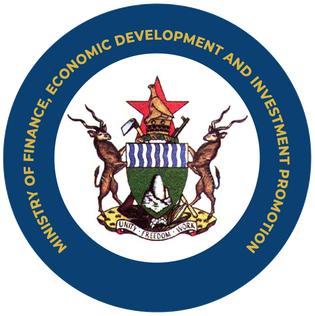
NO doubt the media in Zimbabwe is suffering.
Well, it may not be Zimbabwe alone, but whatever it is we are facing, media financial sustainability is badly wounded.
Digital transformation has not yielded results mainly because it is driven in a haphazard manner in most media organisations.
From rhetoric overused statements like “we have to innovate” to “digital first”, a digital audit of structures in place to current roles in media houses presents a high level of intellectual confusion.
There are those who are convinced digital means social media and their metrics to measure this are comments and sometimes likes on certain posts.
There is also another section, convinced and adamant that media houses will make lots of money from Google, X (formerly Twitter) and even Facebook.
Then there are special cases of those who do not understand what “going digital” really means for legacy newsrooms.
All these are emerging issues from experience and asking around on the status of the so-called “digital transformation” in newsrooms.
- Digital Digest: The digital revolution in the news media: Are you ready to ride the wave?
Keep Reading
There is no denying that entities are in business and at the end of the day, they need to count profits.
But there is also a need to balance between public duty of informing the public and commercial interest.
Reading The Economist’s 2024 annual report gives a prescription on how the media business has changed and to some extent how agility on adapting to news trends helps in sustaining the media business.
“We have changed. We are still a proud newspaper, with proud traditions — but we do things differently now. High-quality digital journalism is what is driving our growth and our growth is driving more excellent digital journalism — which is engaging our audiences more deeply and more often than ever before. Our audiences are changing too. Our new subscribers are younger and more diverse than they used to be — and there are a lot more of them,” the report read in part.

Clearly, The Economist has transformed into values-based digital journalism hence they are attracting subscribers.
Lessons for us are that, we need to constantly evaluate our products, because in most cases, it is past glory that is still magnified, but if you ask the audience, media products are no longer in their best form and quality, either they do not resonate with what the audience want, or they are just irrelevant.
Another point to note about the report is that, they do acknowledge the long road to transforming into a digital first business, but they have also invested in technology, products and the people who are knowledgeable and have a transformative mind.
Naturally, very few journalists are product people or strategy people, but training can compensate for this because the media business needs journalists to lead.
Coming closer home, we hardly invest in technology that is customised for journalism, but the demand for digital revenues is high.
The most comforting aspect is how The Economist brags about their “excellent journalism” and this ultimately means only journalism will serve journalism, but under the condition that it speaks to audience needs and the products are actually quality products that give an audience a compelling reason to purchase them. But there is hope:
Investment in people, technology and strategy
According to The Economist, their success is because of “outstanding journalism and content produced by colleagues throughout the group are the driving forces behind our performance.”
This means journalism is a business, but there is a need to attach value to it, both in terms of operations and generating compelling content that is audience-centric.
If media houses orient people in the organisation to understand that news is the core business and the rest of the business units are pillars of support, problems will not exist even in resource allocation and employing best journalists.
But when there is confusion, conflicts will remain visible between business units, specifically from marketing and sales who may be misled into thinking newsroom business is advertising or marketing.
This has resulted in conflicts, with marketing teams mostly accusing editorial teams of writing stories that paint a bad picture of their potential clients.
Yes, there is a need to balance between editorial and commercial interests, but this must not mean journalism will bow down.
This is mainly caused by lack of orientation on the mandate and mission of journalism.
People are the most important resource in any business. But what makes organisations strong is respecting expertise.
The first step to digital transformation is skills audit: Are the people qualified? Do they have the experience?
But the biggest dilemma is that digital is a novel area and not many understand it, even business owners and some executives.
The danger here is that individuals who are seemingly “confident” and talk a lot, but with limited knowledge may actually convince the organisation to adopt certain decisions that may not make sense.
And it is difficult to make an audit on the proposals because they are not structured.
It is important to have a clearly defined role, clear key performance indicators which are relevant and within global standards since media houses have gone global due to technology that has allowed a wider reach.
The other pressing element is investment in digital tools and infrastructure as well as capacity building.
There is high demand for more revenues, but it does not match investment.
Training and development is critical, new skills are emerging and these can only be resourced through training.
The mismatch in organisations is that expectations are high, but even the people involved in the processes do not have the right skills.
- Silence Mugadzaweta is digital & online editor for Alpha Media Holdings and content strategies blogger for International News Media Association.











